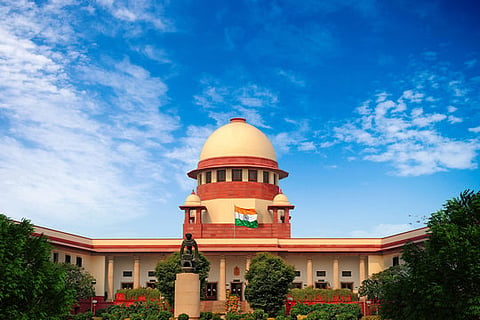

The Supreme Court has asked the Indian Institute of Technology (IIT) Kharagpur to respond to a plea filed by a first-year undergraduate student who challenged the institute’s refusal to approve his transfer to IIT Delhi.
The student, who has been undergoing long-term treatment for a chronic mental health condition at All India Institute of Medical Sciences (AIIMS), New Delhi, argued that the denial put his treatment and academic future at risk, as per a report by Hindustan Times.
A Bench of Justices BV Nagarathna and R Mahadevan, while issuing notice on Friday, also sought replies from IIT Delhi and AIIMS Delhi. The case will be taken up again on October 10 after the petitioner’s counsel, advocate Vipin Nair, pressed for an urgent hearing, citing the student’s fragile medical condition.
Student’s medical history
According to the petition, the student, who belongs to the Scheduled Caste category, was diagnosed with depression and anxiety in 2019 at PGI Chandigarh. In 2022, he underwent Repetitive Transcranial Magnetic Stimulation (rTMS) therapy at AIIMS Delhi, which significantly improved his health. Despite these challenges, he cleared JEE Advanced in 2023 and secured admission to the Bachelor of Architecture (BArch) programme at IIT Kharagpur.
However, being away from his family in Punjab and adjusting to life in Kharagpur triggered a relapse of symptoms at a much higher severity level. PGI Chandigarh later confirmed his deteriorating condition and recommended immediate treatment.
The petition further pointed out that while rTMS facilities are available in Kolkata, the financial burden of travelling there regularly was beyond the family’s means.
Inter-IIT transfer?
The Inter-IIT Transfer Rules allow undergraduate students to shift between IITs on medical grounds. Transfers can be granted either on the basis of the student’s JEE Advanced All India Rank or by allocating them a seat in the programme where the lowest-ranked candidate was admitted that year.
In December 2023, IIT Delhi reportedly gave conditional consent for the transfer, considering its proximity to AIIMS, but asked the student to obtain approval from IIT Kharagpur.
Despite earlier assurances, IIT Kharagpur formally rejected his request on February 13, 2024. The rejection cited four reasons: his JEE rank being lower than required, differences in curriculum, the lack of parity between BArch and BTech admissions, and the claim that transfer rules do not apply to architecture students.
The petition disputes these grounds, arguing that the transfer rules do not exclude BArch students and must be interpreted as applicable to all undergraduate programmes secured through JEE Advanced.
Legal arguments and precedents
The student’s plea urged the Court to direct IIT Delhi to implement its earlier conditional approval and place him in a suitable BTech programme, since the institute does not offer architecture courses. Placement, it argued, should follow the transfer policy, either by AIR rank or through accommodation in a programme where eligibility permits.
The petition also pointed to a precedent from 2023, where IIT Delhi processed the medical transfer of a BTech Chemical Engineering student to IIT Hyderabad due to respiratory issues. Although both were BTech programmes, the case still required curriculum adjustments, which were successfully made. This, the petition stressed, undermines IIT Kharagpur’s claim that academic differences barred the transfer.
Before approaching the Court, the student’s family had written to the Ministry of Education in September 2024. With no response forthcoming, they filed the petition in the Supreme Court earlier this month, added Hindustan Times.
